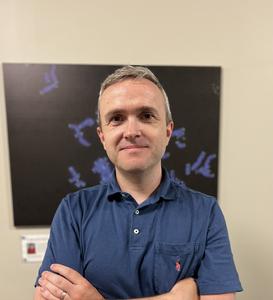Author Interviews, Mental Health Research, Pain Research, Personalized Medicine / 10.05.2024
Healing Faster: Breakthroughs in Recovery from Personal Injuries
On your path to recovery after an injury, you’ll find that medical science keeps evolving. New treatments and tech are not just healing; they’re changing the game of how we bounce back. Guided by fresh insights into technology, we make sure your way back is as effective as it is straightforward.
 Understanding the Latest Diagnostic Tools Enhancing Personal Injury Recovery
In the realm of personal injury recovery, precision in diagnosis is key. Advanced imaging techniques such as High-definition fiber tractography (HDFT) now allow for a superior visualization of neural pathways. Medical pros can pinpoint where you’re hurt with such precision, crafting a rehab plan that fits just right.
Thanks to biomarker technology, figuring out how long recovery will take has gotten a whole lot smarter. Imagine doctors using clues from your body’s own building blocks—genes and proteins—to create a recovery plan that’s all about you. It means less wondering, “Will this work?” and more knowing it will help stitch things back together quickly.
(more…)
Understanding the Latest Diagnostic Tools Enhancing Personal Injury Recovery
In the realm of personal injury recovery, precision in diagnosis is key. Advanced imaging techniques such as High-definition fiber tractography (HDFT) now allow for a superior visualization of neural pathways. Medical pros can pinpoint where you’re hurt with such precision, crafting a rehab plan that fits just right.
Thanks to biomarker technology, figuring out how long recovery will take has gotten a whole lot smarter. Imagine doctors using clues from your body’s own building blocks—genes and proteins—to create a recovery plan that’s all about you. It means less wondering, “Will this work?” and more knowing it will help stitch things back together quickly.
(more…)
 Understanding the Latest Diagnostic Tools Enhancing Personal Injury Recovery
In the realm of personal injury recovery, precision in diagnosis is key. Advanced imaging techniques such as High-definition fiber tractography (HDFT) now allow for a superior visualization of neural pathways. Medical pros can pinpoint where you’re hurt with such precision, crafting a rehab plan that fits just right.
Thanks to biomarker technology, figuring out how long recovery will take has gotten a whole lot smarter. Imagine doctors using clues from your body’s own building blocks—genes and proteins—to create a recovery plan that’s all about you. It means less wondering, “Will this work?” and more knowing it will help stitch things back together quickly.
(more…)
Understanding the Latest Diagnostic Tools Enhancing Personal Injury Recovery
In the realm of personal injury recovery, precision in diagnosis is key. Advanced imaging techniques such as High-definition fiber tractography (HDFT) now allow for a superior visualization of neural pathways. Medical pros can pinpoint where you’re hurt with such precision, crafting a rehab plan that fits just right.
Thanks to biomarker technology, figuring out how long recovery will take has gotten a whole lot smarter. Imagine doctors using clues from your body’s own building blocks—genes and proteins—to create a recovery plan that’s all about you. It means less wondering, “Will this work?” and more knowing it will help stitch things back together quickly.
(more…)


















 LASIK is an excellent option for people who have to wear glasses or contacts and don't want to do that anymore. Before going in for a consultation, it's good to learn as much as possible about it. Here are some answers, including ones if you have
LASIK is an excellent option for people who have to wear glasses or contacts and don't want to do that anymore. Before going in for a consultation, it's good to learn as much as possible about it. Here are some answers, including ones if you have 










